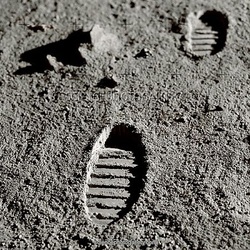What Is Physics?
'Physics' is derived from the Greek word physis, which means 'nature'. Physics explores the mysteries of how nature behaves. The purpose of physics is to ask every question that can be asked about how things work, and then to search for the answers to these questions. There are no clear limits to the scope of physics: it seeks to explain energy and matter, and how they work together; it investigates natural phenomena, from the entire universe down to the tiniest pieces of the atom. The study of physics carries with it a wealth of fascinating mysteries, which is what makes it so exciting. From PHENOMENAL PHYSICS by ISAAC MCPHEE

Never tell me the sky is the limit when there are foot prints on the moon.
Thanks to Raisa for this excellent quote.
"Imagination is more important than knowledge" ALBERT EINSTEIN
“The important thing is not to stop questioning. ” ALBERT EINSTEIN
"I am one of those who think like Nobel, that humanity will draw more good than evil from new discoveries" MARIE CURIE
"To those who do not know mathematics it is difficult to get across a real feeling as to the beauty, the deepest beauty of nature." - Richard Feynman
Thanks to Raisa for this excellent quote.
"Imagination is more important than knowledge" ALBERT EINSTEIN
“The important thing is not to stop questioning. ” ALBERT EINSTEIN
"I am one of those who think like Nobel, that humanity will draw more good than evil from new discoveries" MARIE CURIE
"To those who do not know mathematics it is difficult to get across a real feeling as to the beauty, the deepest beauty of nature." - Richard Feynman